Changing People and Institutions
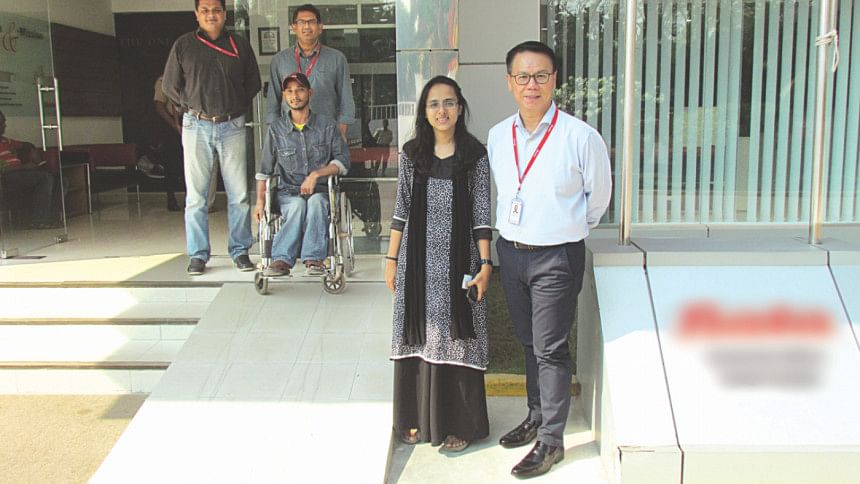
Upon becoming a member of the Global Shaper's Hub of Dhaka, an initiative of the World Economic Forum, I began a disability inclusion project called Odommo. This was and is an issue I felt very strongly about. Realising the lack of representation from people with disabilities in a vital platform such as this Hub, I knew that someone had to start this discussion. Soon, I would learn that, conversations weren't all we needed; there was and is a dire need for proper education on the topic of identity inclusion.
During the selection for the 2016 batch of Global Shapers, Saif Kamal, the curator, made it a point to recruit a person with disability. That's when I met Mohammad Mohasin, the captain of the Wheelchair Cricket Welfare Association of Bangladesh, who I would go on to interview. As he was on a wheelchair, we decided to take his interview at a popular coffee shop on Gulshan Avenue as it had a ramp at the entrance. While Mohasin Bhai was able to get into the building, we found he was unable to sit at the coffee tables because they were on a raised wooden platform. Although the owners of the building and the coffee shop had tried to make their structure inclusive, many factors were overlooked. Perhaps they did not seek consultation regarding making their premises actually inclusive. It also served to highlight the knowledge gap that we all may still have which in turn leads to such mistakes that result in such exclusion.
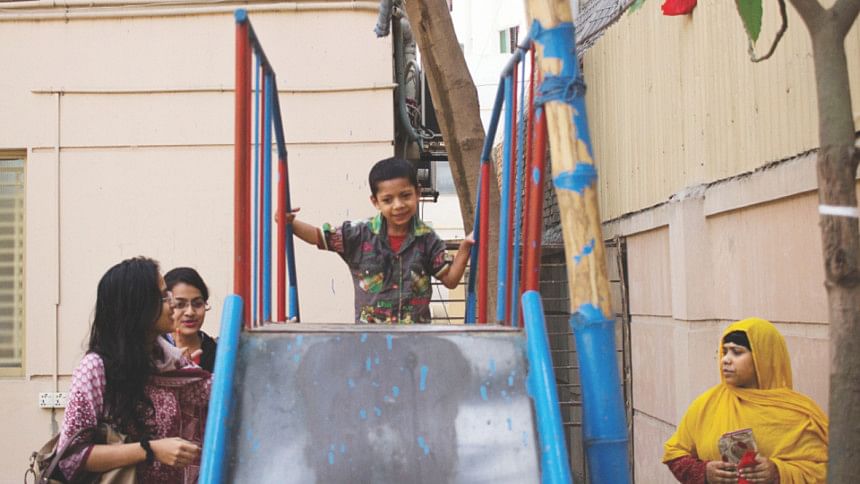
This exclusion is not just due to ignorance and lack of understanding but also a symptom of how exclusion is mired in our social and systemic practices. The idea for Identity Inclusion came to me while working on a disability inclusion initiative and watching BRAC struggle with becoming inclusive of employees with disabilities, despite their best intentions. I realised that being inclusive is not intuitive and being inclusive of people with mental illnesses, learning and developmental disabilities or even conditions such as epilepsy, is worse if not non-existent.
I organised a group of youth volunteers and arranged for their training, starting with the definition of psycho-social disability, a concept new to even many disabled people's organisations. The focus of our project was on psycho-social 'disability' as opposed to 'illness' addresses the pervasive stereotypes, attitudes and barriers faced by people suffering from mental health issues, learning or developmental disabilities, and even conditions such as epilepsy. The idea that disability is not an attribute of a person but a society that excludes people with certain conditions is in accordance with the UN Convention on the Rights of Persons with Disabilities, yet it remains unpracticed.
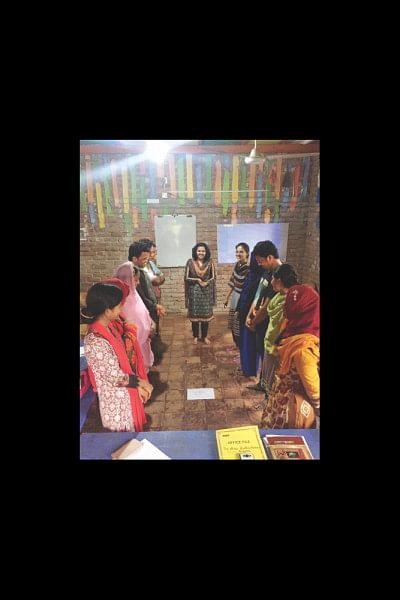
Currently, we are engaged in training youth volunteers on counseling communication skills because counselors are the most non-judgmental people and while this does not make our volunteers certified counselors, they gain important skills in active listening, being non-judgmental and providing active feedback that empowers the person seeking help. We also give them a basic training of national laws of disability and mental health so that our volunteers take a rights' based approach in supporting people with psycho-social disability.
What is particularly unique about our training is the concept of Bio-power and Power-play. 'Biopower' is a term coined by French scholar, historian, and social theorist Michel Foucault. It relates to the practice of modern nation states and their regulation of their subjects through "an explosion of numerous and diverse techniques for achieving the subjugation of bodies and the control of populations." This is a form of power-play. This includes things like laws that disallow people with intellectual disabilities from voting. The draft of the new Mental Health Act puts drug addicts, intellectually disabled people and people with mental health conditions under one definition. This is in contrast to the disabled people's Rights and Protection
Act. Without these conceptual understanding, disability inclusion remains a charity based approach but there is also a lack of services that enable people with mental health and disabilities to be included in society. So these volunteers are then connected to families that need support, such as organising regular recreation, accompanying patients to doctor's visits, etc.
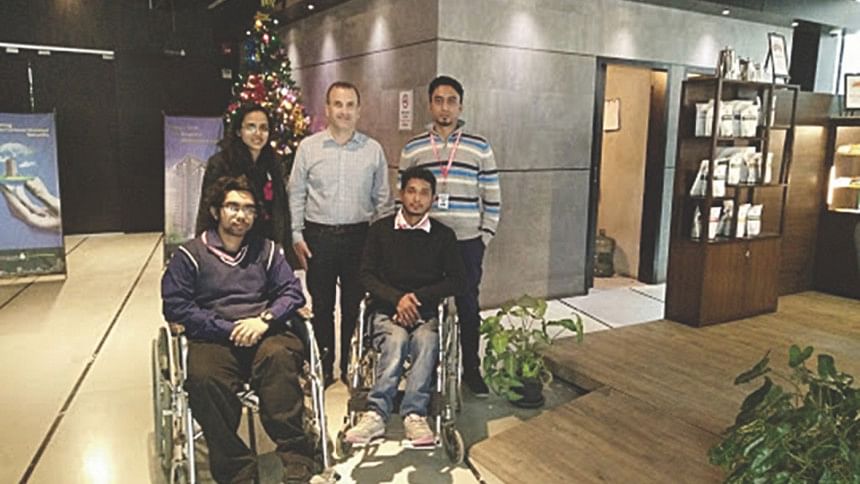
Our first client was a little boy with Cerebral Palsy, who at the age of five could not talk, could not even stand by himself, and had saliva constantly dribbling down the side of his mouth. His father, a contractual pipeline mechanic, and his mother, a housewife, did not have the means to even get him diagnosed and more so did not see the point of investing in a disabled child. Imran's identity would be just that; 'protibondi' or 'pagol' as his family members and neighbours referred to him. Their future plan with him was if things became worse they could go down to the streets, using him to beg. We at Identity Inclusion wanted to change that; we believed that Imran with proper treatment and access to education could develop an identity around his 'abilities', not his disability. Our volunteers arranged for him to get a partial free diagnosis and therapy at the Centre for the Rehabilitation of the Paralysed (CRP) and training for his mother on how to support him. We raised money to pay for regular therapy and the travel expenses to CRP when Imran's parents could not bear it and were still reluctant to spend money on him. Within a year, Imran was not just able to stand; he could run and his vision was more focused and he was able to move his hand to wipe his own saliva. When we proceeded to look for a school for him, people thought we were crazy; even educated and apparently progressive people asked me, “Really? What is he going to do with an education? He can't talk, his eyes and face are distorted, he will never get a job.” Imran's father in particular thought we had some ulterior motive in investing in such a child; he abandoned his wife when she insisted if Imran goes to school she would have time to work and earn. Our volunteers spent days going from one special school to another looking for a school that was close to Imran's home, that would provide therapy and education at reasonable costs.There were none. Imran's mother decided everything was over because without the support of Imran's father, she could not even afford to feed Imran let alone pay 15,000 taka for his admission. Our volunteers did not give up and raised the money needed, counseled Imran's parents convincing them that it was worth investing in Imran. We started a discussion with CRP and The Tech Academy (TTA) to build communication devices for children like Imran who could not speak, to communicate more complex thoughts beyond the limited wooden boards that are used by people with Cerebral Palsy, in Bangladesh.
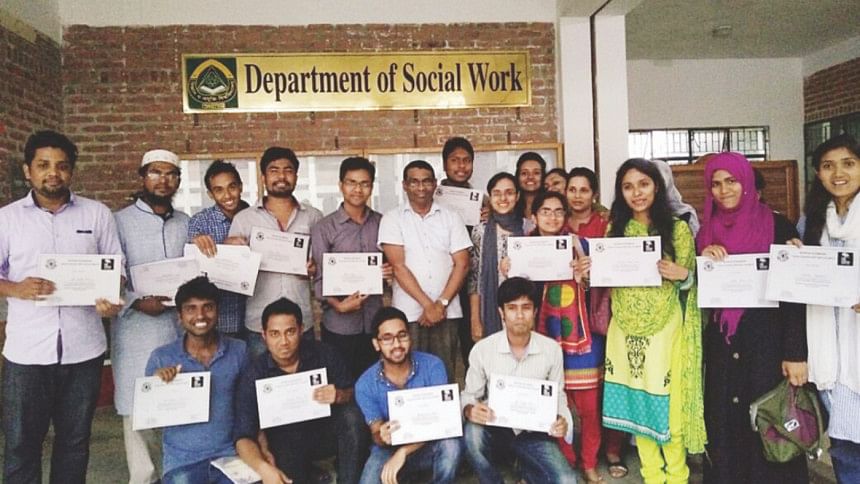
On 3rd April, 2017, Imran was enrolled into the Beautiful Mind School. His mother took up sewing and his father took them back. We are currently supporting an adult with schizophrenia, two children with autism and one child with epilepsy directly.
In December, 2016, not only did we have a Global Shaper on a wheelchair, together with Mohasin as part of the Odommo project, we ensured that the restaurant that provoked such thoughts was now completely wheelchair accessible, along with a Bata retail store in Tongi, and the Bengal Foundation office too.
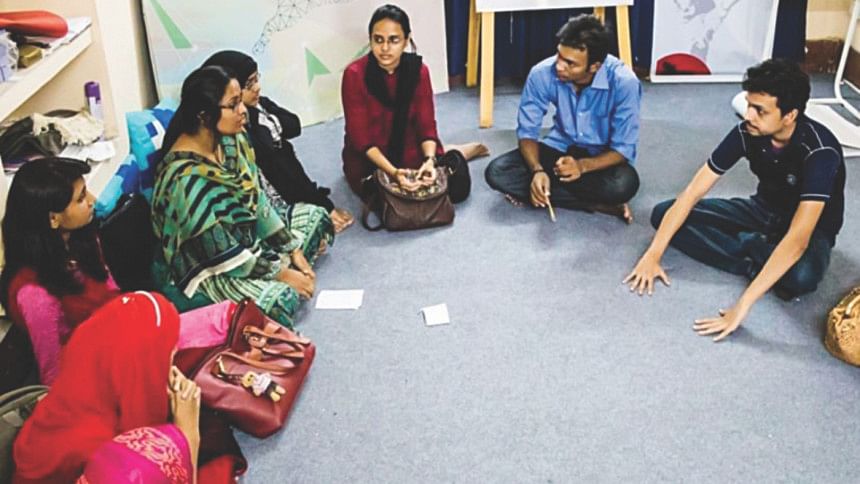
Our prejudices are often hidden from ourselves, and exclusionary practices are often mired in our social structures through divisive concepts embedded in the norms and systems of society. It is not enough to assume that being inclusive is the moral imperative and requires only changing mindsets. Inclusion has to be institutionalised through educating our youths, with skills to provide services that support the most vulnerable members of our society and empower them to participate, develop their own identities and contribute too. As Martin Luther King Jr. once wrote:
“A social movement that only moves people is merely a revolt. A movement that changes both people and institutions is a revolution.”

 For all latest news, follow The Daily Star's Google News channel.
For all latest news, follow The Daily Star's Google News channel. 



Comments